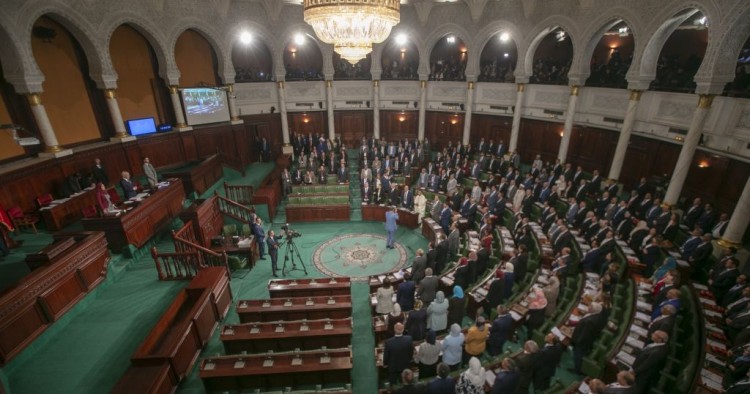Tunisia’s elections in October swept away many of the dominant political forces, but the Islamist Ennahda retains the largest share of seats in the new parliament. Its leader, Rachid Ghannouchi, was elected president of the parliament on Nov. 13. The Islamist party then announced on Nov. 15 that Habib Jemli, the former junior agriculture minister, should try to form the next government. Jemli, who served under Ennahda prime ministers from 2011 to 2014, has a 30-day period, renewable once, to present a cabinet able to secure a majority vote in the 217-member parliament.
Jemli’s challenge is enormous because the parliament is so fragmented. Ennahda has 52 seats, its lowest share ever, and Jemli needs the backing of additional parties to secure the needed 109 votes in parliament. Ghannouchi received support from the second-largest party in the parliament, the Heart of Tunisia party, in order to win his parliament presidency. On Nov. 18 Ghannouchi changed course, saying in a radio interview that Heart of Tunisia would not be in the next government. He seemed to remember that Ennahda during the election campaign had promised not to ally with Heart of Tunisia, whose leader faces corruption charges. Ghannouchi’s radio interview on Nov. 18 contradicted Jemli’s comments to another radio network on the same day that he excluded no party from discussions about the next government. Without Heart of Tunisia, the task of building a viable coalition will depend on bringing together a larger number of more disparate, smaller parties. Moreover, the next government will need strong political backing to pursue difficult economic reforms, such as spending cuts demanded by the IMF, as Tunisia struggles with high unemployment and inflation. To be a successful example of democratization in the region, Tunisia’s political leaders, many of them new and inexperienced, will have to demonstrate great agility in the weeks ahead.
Robert Ford is a Senior Fellow at MEI.
Photo by Yassine Gaidi/Anadolu Agency via Getty Images
The Middle East Institute (MEI) is an independent, non-partisan, non-for-profit, educational organization. It does not engage in advocacy and its scholars’ opinions are their own. MEI welcomes financial donations, but retains sole editorial control over its work and its publications reflect only the authors’ views. For a listing of MEI donors, please click here.













